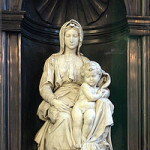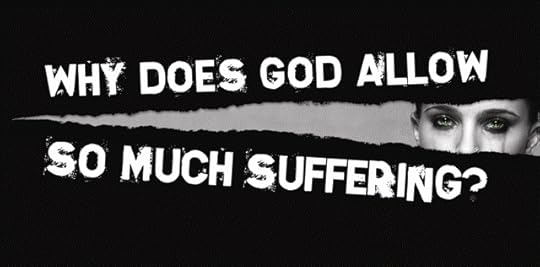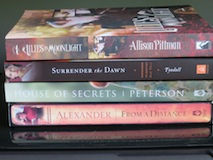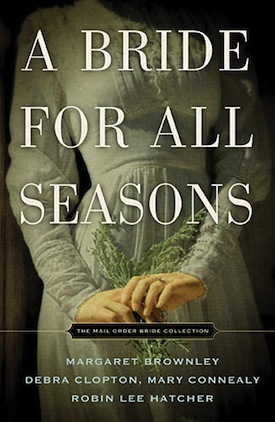Maureen Lang's Blog, page 6
September 2, 2013
Why Pray?
 I’ve often had a sort of see-saw prayer life, where prayer shifts from an ongoing offering of thoughts, praise and pleas from me to God throughout the day to other times when I pray or exchange thoughts with God less often than I’d like to admit. But at church yesterday our pastor renewed my appreciation for the privilege of prayer, which is what I wanted to share today.
I’ve often had a sort of see-saw prayer life, where prayer shifts from an ongoing offering of thoughts, praise and pleas from me to God throughout the day to other times when I pray or exchange thoughts with God less often than I’d like to admit. But at church yesterday our pastor renewed my appreciation for the privilege of prayer, which is what I wanted to share today.
I used to think, in some senses, my prayer was just a bit unnecessary, except in the context of my relationship with God. Having a friendship with anyone means sharing thoughts, ideas and so forth—through discussion. So prayer is clear and obvious evidence of my faith. My petitions for help, though, were usually in the realm of asking for peace, protection, or direction. Important things, all—but not very bold.
But as our pastor reminded us yesterday, God’s preferred method of implementing His will is to wait until we petition Him for our needs. We live in a world that gives us ample opportunity to cry out to God for help, either because of consequences of our own sins or mistakes or from living in a world riddled with natural diseases, disasters or from consequences of other people’s sin. I spoke about this before, that the price of free will is not only love, but suffering. Suffering does remind us of our need for God, and can draw us closer to Him.
Sometimes, though, our prayers within this state of suffering are timid. At least mine have been. Even my pastor admitted at one time his prayers were something like mine: Your will be done, Lord. And so it’s true. His will will be done, and it seems that’s bound to happen whether or not we pray. But if His preferred method of exercising His will is to wait until we ask, then doesn’t it rest on us to ask? Shouldn’t our prayers be more bold than just saying Your will be done?
The reality of prayer is two fold. God’s will is revealed through prayer, and sometimes He answers our prayers the way we hope—but sometimes not. God certainly will heal us from the burdens we’re not meant to carry, but He will not heal us from the burdens we are supposed to carry.
As we pray and ask God for all things, bold in our prayers and petitions, we become more aware of God’s will in our lives. We get to know the burdens we’re supposed to carry and to depend more upon God for the tools, the strength and the comfort we need to face whatever burden we have.
As Paul demonstrated so well through the petitions he sent up for his own healing, a prayer that God didn’t answer the way Paul at first hoped, he eventually accepted God’s grace to be sufficient and that his burden was something he was meant to carry. He also knew his ministry had been extended many times through God’s miraculous mercy. And we all know which of the two resulted in the most glory for God and benefit to mankind!
August 19, 2013
Creativity and God
 When my husband and I were in Brugge, Belgium several years ago, someone happened to mention we ought to see a statue of the Madonna with the infant Jesus at the Church of our Lady, one of very few sculptures by Michelangelo found outside of Italy. There are a lot of statues all over Europe, and we’d already seen a number of lovely works of art. How different could this one be?
When my husband and I were in Brugge, Belgium several years ago, someone happened to mention we ought to see a statue of the Madonna with the infant Jesus at the Church of our Lady, one of very few sculptures by Michelangelo found outside of Italy. There are a lot of statues all over Europe, and we’d already seen a number of lovely works of art. How different could this one be?
 I’m happy to say we didn’t pass up the opportunity, because the statue truly does stand out among so many other notable works. The marble itself draws the eye—it looks so smooth and perfect, timeless, really. And the detail in the faces makes it almost seem as if they’re not made of marble but are real people.
I’m happy to say we didn’t pass up the opportunity, because the statue truly does stand out among so many other notable works. The marble itself draws the eye—it looks so smooth and perfect, timeless, really. And the detail in the faces makes it almost seem as if they’re not made of marble but are real people.
Art may be subjective, meaning one person’s favorite might only lift a shoulder of indifference in another, but however we see perfection, however we define “the best” there doesn’t seem to be much doubt that “the best” does exist, in countless categories. Once the best has been done, all everyone else can do is just admire it and not try to do one better. We may create something else with our own stamp upon it, but excellence is hard to top.
Excellence is an area that reveals God to me. Art may be an imitation of life, but it also reveals one of the ways we’re created in the image of God, with a natural inclination toward creativity. I can only imagine the joy God must have felt when He created the variety of fishes and birds and animals we see around us today. This vast assortment of creatures inhabiting our earth, combined with an abundance of natural wonders just waiting for us to explore, seems to me evidence of a creative God who took pleasure not only in creating such beauty but someone who clearly intended us to enjoy it as well.
I’ve started a Pinterest board that reminds me visually of God’s great variety of creation. Maybe taking a peek at it will start your week with a blessing! Click here to visit my “Proof of God” Pinterest board.
August 12, 2013
Life’s Purpose
 I’ve just returned from a week away on vacation, and soon school will start again—which means back to work for me, having taken off most of the summer, away from my daily writing. I spent most of my summer weeks with family, friends, vacations and some fun reading. I couldn’t stay away from writing altogether, of course, and so I did manage to write half of a book. I wrote when the house was quiet and the time convenient, not on the daily schedule I keep through the school year. This is the time I look forward to most, I think, because I’m happiest when I’m working.
I’ve just returned from a week away on vacation, and soon school will start again—which means back to work for me, having taken off most of the summer, away from my daily writing. I spent most of my summer weeks with family, friends, vacations and some fun reading. I couldn’t stay away from writing altogether, of course, and so I did manage to write half of a book. I wrote when the house was quiet and the time convenient, not on the daily schedule I keep through the school year. This is the time I look forward to most, I think, because I’m happiest when I’m working.
Which leads me to today’s topic. Some people might think I’ve discovered my purpose in life because I find joy in the work God leads me to do. But is my purpose to find my own happiness, whether through work or service?
Secular thinking leads us to think happiness is life’s goal. They say everyone deserves to be happy. Even our Declaration of Independence says human beings have the right to pursue happiness. A more selfless way this is expressed might be for a parent to say: All I want is for my kids to have a happy life.
That’s understandable. When we love someone, we want them to be happy. God Himself, the perfect parent, said He wants us to have an abundant life. (John 10:10) Doesn’t that mean even He wants us to be happy?
The older I get, the more I believe happiness is a by-product rather than the main thing in life. When I read Jesus’ greatest command—to love God with all our heart, soul and mind, and then love our neighbor as our self (Matt 22:36-40) I’m not seeing where our personal happiness is part of our direct purpose.
I read an atheist’s blog posting which tried to debunk the Christian ideal of purpose in life. His understanding of Christian purpose to be singular, one part of a greater puzzle God designed to coordinate each and every one of us. In essence, said this atheist, we’re all just cogs on a giant wheel, slaves to whatever single purpose God wired into us. There is therefore no free will in the Christian worldview but rather a track we’re supposed to follow and stick to it if we’re to find our purpose. Alternatively, he believed purpose is better found in life through the freedom of choice, unlimited and not being a slave to God.
Obviously I disagree with almost everything this atheist believes. I do agree freedom is an important element in our happiness, but it’s God Himself who created us to value and pursue freedom. We’re free to choose our path in life—with God or without Him, and how to spend the time we have here on earth. We’re not cogs on a giant wheel with only one place to fit.
While I do believe God gives each of us special talents and things we particularly enjoy—just as I enjoy writing, an artist enjoys painting or a singer enjoys singing—I think happiness is a by-product of doing something that naturally reflects the glory of God. Many people have multiple talents that bring them happiness. Beside writing, I enjoy decorating and running a household. And that—not the work itself—is where purpose is found. We reflect God’s glory to others in what we love to do. At any given time in my life I’ve been able to choose how to spend my time, but it’s when I’m doing something that reflects God’s glory (such as writing a story that honors Him) that I’m happiest.
When I look out my window and see a bird flying, showing off its color to me, singing a melody, all I can think is that bird is fulfilling its purpose. It’s proclaiming God’s glory in its unique beauty, just by doing some of things God wired it to do.
I think Psalm 9:1 gives us a closer definition of the purpose of life: we’re to proclaim God’s wonders. That means knowing God, and reflecting the glory of His work back to Him. The little birds around us do that with every breath of their life.
So . . . should I pursue happiness? Do I want my kids to be happy? Rather than putting the emphasis on happiness, we should probably think of the real purpose in life as pursuing knowledge of God and reflecting His glory. Happiness is sure to follow.
July 29, 2013
Happiness and Faith
 I’ve heard of polls claiming that people of faith are generally happier than atheists, which of course as a Christian I find easy to believe. Scientific American reported that believers are happier (depending on culture) and a separate CNN report compared Twitter comments between atheist and believers and found more positive or happier comments among the Christian group than those who follow atheists. But if it is true that believers tend to be happier than nonbelievers, why wouldn’t everyone explore faith, if it comes with such promise?
I’ve heard of polls claiming that people of faith are generally happier than atheists, which of course as a Christian I find easy to believe. Scientific American reported that believers are happier (depending on culture) and a separate CNN report compared Twitter comments between atheist and believers and found more positive or happier comments among the Christian group than those who follow atheists. But if it is true that believers tend to be happier than nonbelievers, why wouldn’t everyone explore faith, if it comes with such promise?
Every poll, of course, is subject to interpretation. People naturally seek to justify the reason they think a certain way. Atheists, for example, say it’s the community that goes along with a faith culture that really makes a person happier, not necessarily the faith system itself. And those atheist twitter followers claim to be more thoughtful/analytical rather than emotional.
What I wonder, though, is how someone outside of a faith system interprets information like this without a faith filter. Atheists, on the whole, tend to think of those with faith as someone needing a crutch in life, someone weaker and in need of the emotional comfort provided by fairy tales. It stands to reason they wouldn’t allow a spiritual phenomena to play a part in the results.
But what if Christians are happier simply because they’ve discovered a satisfying relationship with our Creator? Nowhere in the Bible does God promise us a happy life. An abundant life, yes, in the sense of spiritual fulfillment—but happy? Jesus actually said don’t worry about tomorrow, because tomorrow will bring its own worries (Luke 12:22). That must mean our purpose in life isn’t happiness.
If not happiness, what is our purpose, then? Jesus summed it up this way: Love God with your heart, soul and mind, and love your neighbor as yourself.
The obvious result of loving God and our neighbor is the community this secular study in Scientific American said is the real reason believers are happier. If you ask me that’s getting it backwards; the study is revealing a spiritual phenomena without calling it that.

And now I’d like to announce the winner of my most recent contest, Summer Reading Giveaway #2:
Cheryl L
Congratulations, Cheryl! I’ll be in touch to learn where to ship the books, and I hope you’ll enjoy these wonderful books as much as I did!
Please visit again next week, when I’ll be giving away four different and gently-used titles.
July 22, 2013
A Brief Note on Buddhism
 Buddhism has come up in my life from two different directions recently, so I thought I’d take a few minutes to give my impressions on how Buddhism and Christianity are different—specifically because one source I faced wanted to blend the two worldviews as if they’re simpatico.
Buddhism has come up in my life from two different directions recently, so I thought I’d take a few minutes to give my impressions on how Buddhism and Christianity are different—specifically because one source I faced wanted to blend the two worldviews as if they’re simpatico.
While Buddhism, like Christianity, stresses a virtuous life, Buddhism at its core is a works-based religion. There is no personal God in Buddhism, and as far as I know there is no creation explanation within a Buddhist worldview. In one sense Buddhism is a pursuit of both wisdom and freedom from desire, but asking questions about the origin of the physical world (which could have been reincarnated many times over) must seem an unnecessary pursuit since that has little to do with seeking personal purity. In other words, there is no personal God revealing Himself in the wonder and power of the Universe, no personal God with whom we can commune under a canopy of creation.
Buddhism is growing in popularity. It’s easy to be politically correct in Buddhism, because it seeks to judge no one. And while we as Christians shouldn’t judge, either (who among us is without sin?) we do know God has that right. Another reason for the growing popularity of Buddhism is its explanation for suffering. In Buddhism there is a cycle of many lives, karmic energy passed forward from one life to another—so if someone suffers in this life, it’s because they’re paying for the evils they did in a former life. In other words, good works will pay for the sins of a past, unremembered life.
In our limited sense of justice we may desire some kind of explanation for the unfair distribution of suffering, particularly when it’s undeserved. (Last week I spoke about suffering, so if you haven’t see that click back a week for some thoughts on that.) Because we live in a natural world, one that suffers disease and the aches and pains of a decaying world, and because those of us who inhabit this world can exercise bad choices that hurt ourselves or others, we can suffer the result. But Christ, rather than our own good works of atonement, is the biggest difference between Christianity and Buddhism. Christ died so our sufferings here on this testing ground called life can end, for once and for all, with an eternity filled with community between others and the God who created us.
For a more comprehensive comparison of Buddhism and Christianity, click here
Finally, I’d like to invite you to participate in my ongoing contest, which I began last week. If you’d like to win four gently used but still wonderful Christian fiction titles, read on:
A Hope Undaunted by Julie Lessman
Moonlight Masquerade by Ruth Axtell
In The Land of the Blue Burqas by Kate McCord (A protective pseudonym for a non-fiction book of the author’s years spent in Afghanistan)
Words Spoken True by Ann H. Gabhart
This giveaway will last for two weeks, ending Sunday evening 7/28/13. The chances of winning are related to the number of entrants, and no purchase is required.
July 15, 2013
Faith-Filled Summer #4: On Suffering
 Why would a good God allow so much suffering in the world? This question may be used to reject God more than any other. Sooner or later everyone suffers. Granted, there are some whose sufferings seem minor in comparison to others, although if we stood in the shoes of someone not toughened by much suffering before facing their “minor” challenge we might learn they feel as downtrodden as someone else enduring something far worse. Suffering is suffering, and it’s difficult to weigh its effect on anyone else. This is, of course, one other way God gets the blame: the uneven distribution of suffering.
Why would a good God allow so much suffering in the world? This question may be used to reject God more than any other. Sooner or later everyone suffers. Granted, there are some whose sufferings seem minor in comparison to others, although if we stood in the shoes of someone not toughened by much suffering before facing their “minor” challenge we might learn they feel as downtrodden as someone else enduring something far worse. Suffering is suffering, and it’s difficult to weigh its effect on anyone else. This is, of course, one other way God gets the blame: the uneven distribution of suffering.
How do we make sense of suffering? Why does God allow such a thing, especially if He loved us enough not only to give us a world as beautiful as the one around us, but to take on human flesh and die for us so we could spend eternity with Him?
Suffering requires me to have a concise statement reminding me of my faith. Sort of a mission statement, so my faith doesn’t get sidetracked when I don’t understand why God has allowed something I’m not sure I can bear. I have several statements, and this is my first:
God set up a faith-based system.
This simple statement reminds me that bad things can happen to good people because if God allowed only good things to happen to His people, people of faith, then it wouldn’t take faith to believe in Him. It would just take common sense. Only good things go to believers? Okay, I’ll be a believer.
Further, God must allow suffering because He gave us free will. Some suffering is a result of bad choices we make with our free will, but that’s clearly not the only reason people suffer. Many people suffer because of the bad choices other people make in their own exercise of free will.
The cost of free will is love and suffering.
If God had made us without the ability to choose—either for or against Him—then the result wouldn’t mean much. We’d have no choice, we would just love Him because He programmed us that way. But He gave us a choice so it would mean something. Love freely given is real love.
God placed us in a natural world—one that reveals His power and glory and yet is another avenue for suffering: through natural disasters like earthquakes, floods and other storms.
God’s natural world obeys the physical laws He set in place in the universe.
There is a great essay on this topic found at the God and Science website, here. It explains, in a reader-friendly way, how the natural processes God set up for us to thrive on this planet follow a necessary pattern. The earth in its natural form actually needs earthquakes and floods and even volcanoes to sustain itself as a life-giving planet. It’s definitely worth a peek to see how science reveals the fine-tuning of God’s universe which fits so well with the Bible. It’s also fascinating to consider the perfect world atheists seem to want is the exact world God will create in the future, after this current world comes to an end (reference found at the end of the essay).
My last concise statement on suffering is to remind myself of my real purpose in life.
God created me for fellowship with Him.
Our culture bows to the idol of feelings. If it feels good and doesn’t hurt anybody, it must be right. We deserve to be happy. Our greatest goal for our children is simply for them to be happy. Well, while I do believe God gave us the unalienable right to pursue happiness, I do not believe God created us as self-centered beings with the main goal to satisfy our own wants and dreams. That just seems a setup for disappointment, because once we get something we want we always seem to want more. I believe He created us to love Him and others (Matthew 22:36-40). Nowhere in that greatest commandment do I see we’re to focus on our own happiness. I do believe, however, that our happiness is a natural result of loving God and others—I know it is for me.
God’s purpose for us begins in this life by enjoying His fellowship, but doesn’t end when we die. This world is the testing ground, where we make our choice to fellowship with Him or not. After we die, the fellowship continues—or doesn’t.
So that, in brief (or not so brief!) are the statements I remind myself when I struggle. God never promised a life without suffering but to be with me always, even in my suffering. Knowing the real purpose of my life is fellowship with God tends to lessen my self-pity and reminds me the best is yet to come!
I’d also like to invite you to enter another contest that will help me clear off my too-large book inventory! I’ve read so many books I can’t possibly keep them all, no matter how much I’ve loved reading them. Just sign up below to be entered for a chance to win the following four books:
A Hope Undaunted by Julie Lessman
Moonlight Masquerade by Ruth Axtell
In The Land of the Blue Burqas by Kate McCord (A protective pseudonym for a non-fiction book of the author’s years spent in Afghanistan)
Words Spoken True by Ann H. Gabhart
This giveaway will last for two weeks, ending Sunday evening 7/28/13. The chances of winning are related to the number of entrants, and no purchase is required.
July 8, 2013
Faith-Filled Summer #3: Science and our Creator
 This is the third part of my current series exploring the reasons for my faith, written with the hope of putting into words this highly personal but important slice of life. This week I’ll be talking about our miraculous world.
This is the third part of my current series exploring the reasons for my faith, written with the hope of putting into words this highly personal but important slice of life. This week I’ll be talking about our miraculous world.
I’ve shied away from the subject of science in the past, mainly because I’ve experience first-hand how emotional this topic can be. This may come as a surprise to some, but there are compelling arguments whether or not the 7 days of creation are 24 hours or longer periods of time. So it’s my goal to be sensitive to the multiple sides, knowing there are many devoted followers of Christ who dearly hold different views of creation. It’s my belief that whether a person thinks the world was created thousands of years ago or billions will make little difference once we’re in heaven—together. One of my brothers, a pastor, holds the belief that everything was created just thousands of years ago. Although I believe the 7 days of creation were long periods of time, I know my brother and I can agree to disagree on this topic and never doubt how much we love God and how much He loves both of us.
The most exciting result of investigating science is the increasing evidence in the universe for a Creator. The more scientists learn about the fine-tuning required to make life possible right here, right now, the more creation seems to point to a Creator. Even atheist Fred Hoyle said something along the lines of the universe being so fine-tuned it’s as if it knew man was coming.
Last week I wrote about why I trust the Bible as the word of God. I’ll add another reason for that trust: the Bible is the only holy book that places God, the Creator, outside of time. Time is a dimension of the universe and began at its creation, which God set in motion. Beside that, the Bible, 2,500 years ago, rightly named the stars and universe as stretching out (Ps. 104:2, Job 9:8, Is. 42:5 to name a few) but it wasn’t until Einstein’s theory and Hubble’s experiment that proved the universe is indeed expanding.
Did you know our moon is a miracle? It’s 50 times bigger than any other moon in our solar system. Just by chance? Nasa says a Mars-sized body collided with Earth and the debris formed into our moon. This big moon “satellite” orbiting the sun alongside of us was just what we needed to make our atmosphere friendly for life, and what we still need today to stabilize our rotation. Without the moon, in its ridiculously large size, our orbit would be wobbly, our tides unstable, and our climates wouldn’t be regulated. The earth’s thin crust (around a really hot middle) is not only beautiful, but it keeps us comfortable and provides an environment for time markers. Without seasons how would we record the passage of time? (Such things as tree rings and ancient air bubbles in icecap snows, and the layers in molten rock and even in coral fields help us to do this).
And did you know the Eclipses of the sun and moon allow scientists to study the sun’s surface? The size of our moon allows perfect eclipses, as if God knew we’d want to explore and investigate the universe around us.
Earth is also perfectly placed in the sun’s orbit with other planets so much larger like Jupiter and Uranus which act as the perfect shields to protect us from a sometimes unfriendly universe and its debris. It’s like—hey! Somebody planned to keep Earth protected for the long haul.
Our atmosphere also allows just enough radiation to penetrate—any more and we’d all be fried.
I do believe there were upright, bipedal creatures called hominids and then Neanderthals whose DNA does not match modern man’s. There is scientific evidence to suggest these bipedal hominids lived as long ago as 7 million years and for the Neanderthals as recently as 100,000, but they have no genetic link to man. One of the reasons God may have created them as a precursor to man was to acclimate the animals already existing to the presence of an upright, superior hunter. I read that in areas where fossils show these hominids existed the animal population actually sustained itself once humans reached those areas, perhaps because the animals had been conditioned to fear creatures who walked and hunted like we do. In areas that didn’t have a record of these creatures the animal population was greatly reduced once man entered the area, because they hadn’t experienced the hunting ingenuity man used.
So that brings us to Adam and Eve, created just thousands of years ago. Even many Christians who believe the creation event was 7 short days believe Adam and Eve could have been created as many as 40,000 years ago, so that’s something we can agree on. The exciting thing about this date is that along with the presence of modern humans came other big bangs: of worship and art and language.
This is just a snippet of an overwhelming amount of evidence for a fossil record that shows evidence of a creator. For more information about creation, I suggest hunting the Reasons to Believe website, which offers many resources on this topic from a Christian perspective. If you’re especially science-minded, you might be interested in the list of scientific design elements that explain just how fine-tuned our universe is. At the end of Parts 3 and 4 are statistics about the probability of all the events happening “by accident,” in relation to having a planet exist with all of the necessary elements necessary for life. Here’s one of the summaries about our life-supporting earth:
Thus, less than 1 chance in 10 to the 1032 (power) exists that even one such life-support body would occur anywhere in the universe without invoking divine miracles.
(The 10 – 1032 means a ten with 1,032 zeroes after it, a number so big I can’t even visualize it. One chance in a number so large is a chance I wouldn’t take if I played the lottery.) 
These numbers would vary depending on who calculated them, but no matter who does the calculating the number is incredibly, almost unimaginably large.
Nearly all of the information on this particular list is beyond my comprehension, but then adding numbers like 237 + 458 are difficult for me, at least without writing the numbers down! What I do know after skimming lists like this is that there is more than enough evidence to support a Creator than everything around us being just an accident.
And if the Bible is the only book that reflects the incredible scientific discoveries man has made recently, doesn’t that give us one more reason not only to trust it, but to trust the Creator who is speaking to us in its pages?
July 1, 2013
Faith-Filled Summer #2: The Bible
 This summer I’m talking about what and why I believe, and this week I’ll touch on the topic of the Bible as the Word of God. Some of these aspects I’ll explore later in greater detail.
This summer I’m talking about what and why I believe, and this week I’ll touch on the topic of the Bible as the Word of God. Some of these aspects I’ll explore later in greater detail.
Basically there are five things that immediately come to mind when I think of the Bible’s extraordinary reliability:
Historical references
Prophecies
Scientific insight
Knowledge of human nature and divine wisdom
Accurate inspiration for personal experience
Let me start by saying that the Bible wasn’t written as a history textbook, science book, or a book of prophecy but if it’s the Word of God I would expect it to be accurate wherever it makes a claim.
Recently my church has been going through a series called Artifacts that addresses historical support for the Bible. I’ve enjoyed hearing accounts of how sources outside the Bible verify its historical claims. In the most recent sermon, my pastor referenced an ancient clay prism that records the attack of an Assyrian King (Sennacherib) on King Hezekiah and how the Assyrian army conquered so much of the Jewish realm but stopped short of conquering Jerusalem. Many details recorded in the Bible are verified on this clay prism that was commissioned by Sennacherib. This is of course just one of many of the historical events, realms, battles, people and places that are written in Scripture with astounding accuracy.
Here is a link to the sermon my pastor did just this weekend which talks about the historical accuracy of the Bible. If you’re reading this on Monday the most recent sermon from yesterday may not come up yet, but frankly any sermon from this series is worth your time!
Prophetic accuracy is another exciting and compelling area verifying the Bible as the Word of God. There are about 2500 prophecies recorded in the Bible, and 2,000 have already been fulfilled—with 100% accuracy. The remaining prophecies concern future events, so with such an established track record it’s a safe bet that it’s only a matter of time before the remaining prophecies are fulfilled. For a brief list of about a dozen prophecies (such as some fulfilled by Jesus, others regarding the Jewish dispersal and return to Israel which was fulfilled in 1948, among others) click here. It’s an interesting list because it includes the probabilities of having such a prophecy fulfilled with such accuracy.
One of the most controversial subjects in the Bible centers around the age of the universe. I’m married to a Physics teacher, so how science relates to the Bible has been an area I’ve enjoyed exploring. There are several camps when it comes to science and the Bible, but here are three I’ve encountered recently:
The Bible speaks only in metaphorical terms, it’s not to be read literally, so there is no real science in the Bible
The Bible speaks of the creation event literally, but interpreted with big chunks of time regarding creation (not 7 – 24 hour days)
The Bible speaks plainly and literally in all things, including creation
I know devout Christians who believe the world was created 6 to 10 thousand years ago; I know equally devout Christians who believe God created the world billions of years ago and used evolution to get us where we’re at today. Personally, I’m in the middle camp. I do believe God used great periods of time rather than six literal, 24-hour days of creation, but I don’t hold to evolution at all, except within species (in other words, I don’t believe we evolved from apes or little fish-like creatures escaping a primordial soup). Let me be quick to add that this topic may seem divisive within the church, but the one area that binds all three camps together is belief that God is our creator and He sent His Son Jesus to die for us—on that all Christians agree, whether they believe in a young or old universe. We all need to celebrate that as the most important element of our faith.
The last two items on my list speak for themselves. The timeless wisdom in the Bible is evident to anyone who reads it, and once someone reads the Bible as the Word of God and not just another book it’s amazing how miraculously something written so long ago applies to people today. It’s a timeless book of divine insight into human nature—showing we certainly haven’t evolved much in the thousands of years since the Bible was recorded.
I’m hoping to keep all of my posts as brief as possible, so I’ll end this for today. But if you have any time, please do take a peek at the sermon and the list of prophecies.
Celebrating all the ways the Bible is different from every other book is one sure way to deepen our faith.
Finally I want to share the winner of last week’s contest for my four, gently used Christian fiction titles. And the winner randomly chosen by Punchtab is:
Barbara Waite
Please check back next week when I’ll be giving away another set of four Christian titles.
June 24, 2013
Faith Filled Summer #1
Faith is one of those things that can be mysterious or simple, profound or child-like. It can be explored with depth and breadth and still leave room for questions. But in my daily experience, I’ve found it helpful to have certain foundational truths to fall back on, especially when something comes along that tries challenging what I believe.
 One of the most basic tenets of my faith runs through my mind nearly every day, simply by thinking of the beautiful world we live in. I wish I could see these mountains and flowers out my window, but with a little imagination and help from Bing Free Images, I’m reminded of some extraordinary views like the one pictured here. Everywhere I turn, I see evidence of a Creator’s love. Green plants, wildflower colors, unimaginable fragrances, endless blue skies that often turn into a blaze of sunset colors. Need I search out the variety of playful puppies, the extraordinary variety of birds and fishes and other animals? Or tune in to Pandora to be reminded of the incredible musical gifts we enjoy, or turn to my book shelf to see story after story written by my friends, each one exhibiting creativity and an ability for knowledge that must be more than merely accidental?
One of the most basic tenets of my faith runs through my mind nearly every day, simply by thinking of the beautiful world we live in. I wish I could see these mountains and flowers out my window, but with a little imagination and help from Bing Free Images, I’m reminded of some extraordinary views like the one pictured here. Everywhere I turn, I see evidence of a Creator’s love. Green plants, wildflower colors, unimaginable fragrances, endless blue skies that often turn into a blaze of sunset colors. Need I search out the variety of playful puppies, the extraordinary variety of birds and fishes and other animals? Or tune in to Pandora to be reminded of the incredible musical gifts we enjoy, or turn to my book shelf to see story after story written by my friends, each one exhibiting creativity and an ability for knowledge that must be more than merely accidental?
When I look at creation, or when I see evidence for a creative streak in mankind, I see proof of love in our Creator. If the universe is an accident, isn’t it extraordinary that something so accidental has resulted in so many varieties of things that appear to be here simply for us to enjoy? That, to me, is proof of a generous creator who enjoys not only what He’s created, but wants those He created to feel enjoyment, too. A generous creator has lavished gift after gift upon us not only for our survival, but for our pleasure. (I’ll talk more about fine tuning evidence for a creator in a future post.)
Love itself is evidence of a creator who bestowed such a gift on this world. We, as the created, can’t possess something our creator didn’t already have—how can we be greater than the one who made us? So love in itself is evidence of God and His love.
Seeing evidence for love by the bounty surrounding me and the wonder of feeling love myself, I look for evidence of where all these gifts came from. What world view offers a Creator who is loving? Buddhism instructs its followers to love others, but does it offer a source of love outside ourselves? At its core I see Buddhism as a works-based world view, with its followers striving toward denying oneself, seeing desire as the source of what’s wrong in this world. But it doesn’t claim a loving, personal God. Does Islam, another works-based program, reveal a God whose desire is to spend eternity with each and every one of us? Ultimately even the most faithful Muslim cannot know, when they cross that bridge connecting this life to the next, if they will fall into the side of Heaven or Hell, because that moment will play out according to the whim of Allah (unless you give your life while taking the lives of infidels—is that love?). I admit I have not studied the over 2,000 gods found in the Hindu religion, but like Buddhism this is a system of working toward liberation from a cycle of birth/death/rebirth, paying forward positive karmic energy which will ultimately lead to something like nirvana, a state of liberation. But if liberation means an end—both of suffering and of identity, is there any sense of love found in that? An end in what basically equates to annihilation?
There are other worldviews, of course, but in my search so far I find love only in the Bible, where a creative God explains that He wants to spend eternity with us. So much that He was willing to take on human flesh in the form of a Savior named Jesus to clean up my imperfections, as a gift, so I can share the presence and fellowship of a perfect God.
That’s love, and the Bible is riddled with it. Next week I’ll talk about the Bible itself, and why I believe in it. So stay tuned!
In the mean time, if you’d like to be in the running to help me make some space on my bookshelves, enter the contest below for a chance to win the following four Christian fiction titles:
 Lilies in the Moonlight by Allison Pittman
Lilies in the Moonlight by Allison Pittman
Surrender the Dawn by MaryLu Tyndall
House of Secrets by Tracie Peterson
From a Distance by Tammy Alexander
Wonderful writers, all! I’ve either purchased these books or received them as gifts from various conferences I’ve attended. These are all favorite authors for me, so I’m sure you’ll enjoy these entertaining stories. No purchase is required to enter for a chance to win all four of these books in one shipment, and the odds of winning depend upon the number of those who enter. (Continental US only, please.)
June 19, 2013
New Fiction Wednesday!
 I’m so excited to share with you a novella compilation, authored by a number of talented Christian writers! Here’s the scoop, with a note from each of the authors:
I’m so excited to share with you a novella compilation, authored by a number of talented Christian writers! Here’s the scoop, with a note from each of the authors:
A BRIDE FOR ALL SEASONS
by Debra Clopton, Margaret Brownley, Mary Connealy, Robin Lee Hatcher
It All Started with an Ad in a Mail Order Bride Catalogue…
Melvin Hitchcock of the Hitching Post Mail Order Bride Catalogue isn’t dishonest—not exactly. If he tweaks his clients’ applications a bit, it’s because he’s looking out for their best interests.
This charming bouquet of novellas introduces four Hitching Post prospects in the year 1870, each one eager for second chances . . . and hungry for happiness. Year in, year out, they’ll learn that love often comes in unexpected packages.
“And then Came Spring” by Margaret Brownley
Mary-Jo has traveled halfway across the country to meet her match, arriving just in time for his funeral. Returning home seems like her only option until her would-be brother-in-law proposes a more daring idea.
“An Ever After Summer” by Debra Clopton
Ellie had no idea she’s not what Matthew ordered. And what’s wrong with being a “Bible thumper” anyway? She’s determined to show him she’s tougher than she looks—and just the girl he needs.
“Autumn’s Angel” by Robin Lee Hatcher
Luvena would be perfect for Clay if she didn’t come with kids. But kids are a deal breaker, especially in a rough-and-trouble mining town. The trouble is, there’s no money to send them back . . .
“Winter Wedding Bells” by Mary Connealy
David’s convinced he’s not long for the world. He needs someone to mother his boys when he’s gone—nothing more. Can plucky Irish Megan convince him to work at living instead of dying?
To read an excerpt from Robin Lee Hatcher’s novella, click here: http://robinleehatcher.com/a-bride-for-all-seasons-excerpt/
WHAT OTHERS ARE SAYING:
“Delightful at every turn, A Bride For All Seasons gives the “mail order bride plot” a creative—and addictive—new twist. I couldn’t read fast enough. With spunk, humor, and tenderhearted romance this anthology is truly made to order!” — Tamera Alexander, USA Today bestselling author of To Whisper Her Name and The Inheritance
“Four popular authors have penned an engaging novella collection with a creative and humorous premise. From distressing to delightful, A Bride for all Seasons bounces your emotions around like they’ve been on a bumpy 1800s stagecoach ride, with each story arriving at a highly satisfying ending.” — Vickie McDonough, award-winning author of 27 books and novellas, including the Pioneer Promises series
FROM THE AUTHORS:
Margaret Brownley: ”I love reading mail-order bride stories and I don’t know what took me so long to write one. And Then Came Spring is about a gambler’s daughter who travels west expecting to wed the man with whom she’s been corresponding. Things sure don’t turn out the way she expected., but where love is concerned they rarely do. I hope you enjoy all four stories in A Bride For All Seasons as much as I enjoyed working with these three terrific authors.” http://www.margaretbrownley.com/
Debra Clopton: ”I had such a great time writing An Ever After Summer for A Bride For All Seasons! This may be my first 1800′s western historical but it won’t be my last. What a blast! My Mule Hollow series from Love Inspired may have the ‘Matchmaking Posse’ but these mail order brides have Melvin Hitchcock editor of the Hitching Post Mail Order Bride catalogue and he gives the Posse a run for their money on matchmaking! I do believe my readers will love this collection and if you loved Samantha the donkey–then An Ever After Summer has a surprise waiting for you inside…” http://debraclopton.com
Mary Connealy: “We all worked together so well and had so much fun brainstorming A Bride for All Seasons. I am working with creative, talented professionals here and I learned so much…and had a great time while I was learning. I hope you enjoy reading this book, including my contribution, Winter Wedding Bells, as much as I enjoyed writing it.” http://www.maryconnealy.com/
Robin Lee Hatcher: “I had great fun writing my novella, Autumn’s Angel, for this collection. It allowed me to return to Grand Coeur, the setting for my novel, Heart of Gold, and to revisit some of the characters from that book. And I think readers of these mail order bride stories are going to love the meddling owner of the Hitching Post even as they see the chaos he creates for these four couples.” http://www.robinleehatcher.com
TO PURCHASE THE BOOK:
http://www.robinleehatcher.com/books/a-bride-for-all-seasons-2/
FOR A CHANCE TO WIN A $30 BOOKSTORE GIFT CARD:
http://www.robinleehatcher.com/celebrating-the-release-of-a-bride-for-all-seasons/
(Note: the Rafflecopter form doesn’t work without Javascript enabled in your browser)
Happy Reading!



